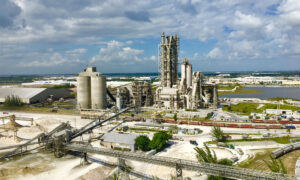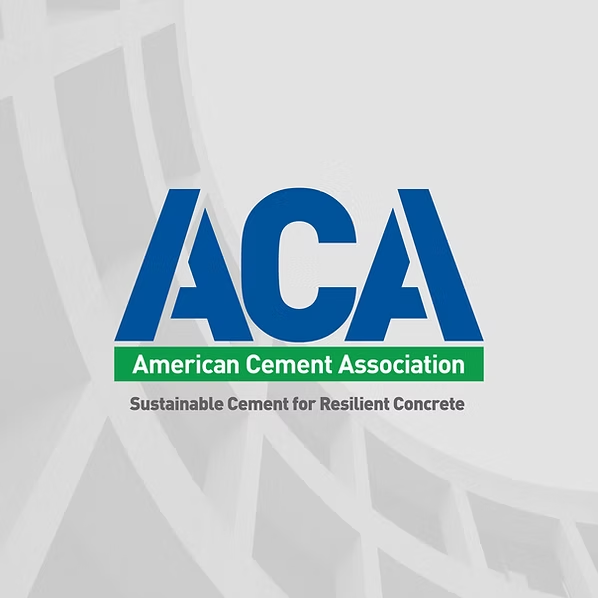Titan North America
 At the heart of Titan America’s sustainability strategy is the Pennsuco plant in Medley, Florida — the largest cement facility in the state and a model for environmentally responsible manufacturing in the United States. Since 2015, Pennsuco has reduced carbon emissions by more than 20 percent and has fully converted to producing lower-carbon Type IL cement.
At the heart of Titan America’s sustainability strategy is the Pennsuco plant in Medley, Florida — the largest cement facility in the state and a model for environmentally responsible manufacturing in the United States. Since 2015, Pennsuco has reduced carbon emissions by more than 20 percent and has fully converted to producing lower-carbon Type IL cement.
Pennsuco was the first cement plant in the world to achieve Platinum-level certification under the TRUE Zero Waste program, diverting 97.5 percent of its waste from landfills or incineration in 2023. It has earned 17 consecutive EPA ENERGY STAR® certifications and is one of only two U.S. cement plants certified to ISO 50001 for energy management, alongside its sister plant in Roanoke, Virginia.
Central to these achievements is Titan’s Alternative Fuels and Raw Materials (AFR) program, a cornerstone of the company’s decarbonization roadmap. Since 2008, Pennsuco has been steadily replacing traditional fossil fuels with a diverse mix of alternatives. The program includes the use of tire-derived fuel, which has allowed the plant to co-process more than 150,000 tons of tires over the past decade — the equivalent of roughly 15 million passenger tires — as well as used oil, with more than 2.2 million gallons incorporated into kiln operations since 2022. The plant’s multi-million-dollar processed engineered fuel (PEF) facility, commissioned in 2021, can handle up to 150,000 tons of non-hazardous waste annually, transforming materials such as municipal recovery facility residues, construction debris, and biomass into a consistent, high-quality fuel. By using industrial byproducts such as fly ash, mill scale, and foundry sands as alternative raw materials, Pennsuco is also reducing the need for virgin resources while cutting CO₂ emissions.
These integrated solutions give Pennsuco a very high thermal substitution. The co-processing approach completely destroys organic material, neutralizes acid gases, and incorporates inorganics directly into the clinker, eliminating the potential for leaching.
Equally transformative has been the plant’s adoption of artificial intelligence to fine-tune operations. Real-time optimization systems, powered by AI, continuously process data from sensors throughout the facility, adjusting process parameters to reduce energy consumption, lower CO₂ emissions, and increase productivity. Predictive maintenance models analyze thousands of data points to anticipate and prevent equipment failures, avoiding costly downtime. AI-driven quality control systems forecast cement performance during production, allowing adjustments that reduce clinker use, improve grinding efficiency, and ensure consistent quality. Even fuel usage is optimized through AI modeling, maximizing the share of lower-emission fuels such as natural gas and alternative sources.
By combining advanced waste co-processing with cutting-edge AI optimization, Titan America’s Pennsuco plant is redefining what a modern cement facility can accomplish — setting a high standard for performance, reliability, and sustainability well into the future.
